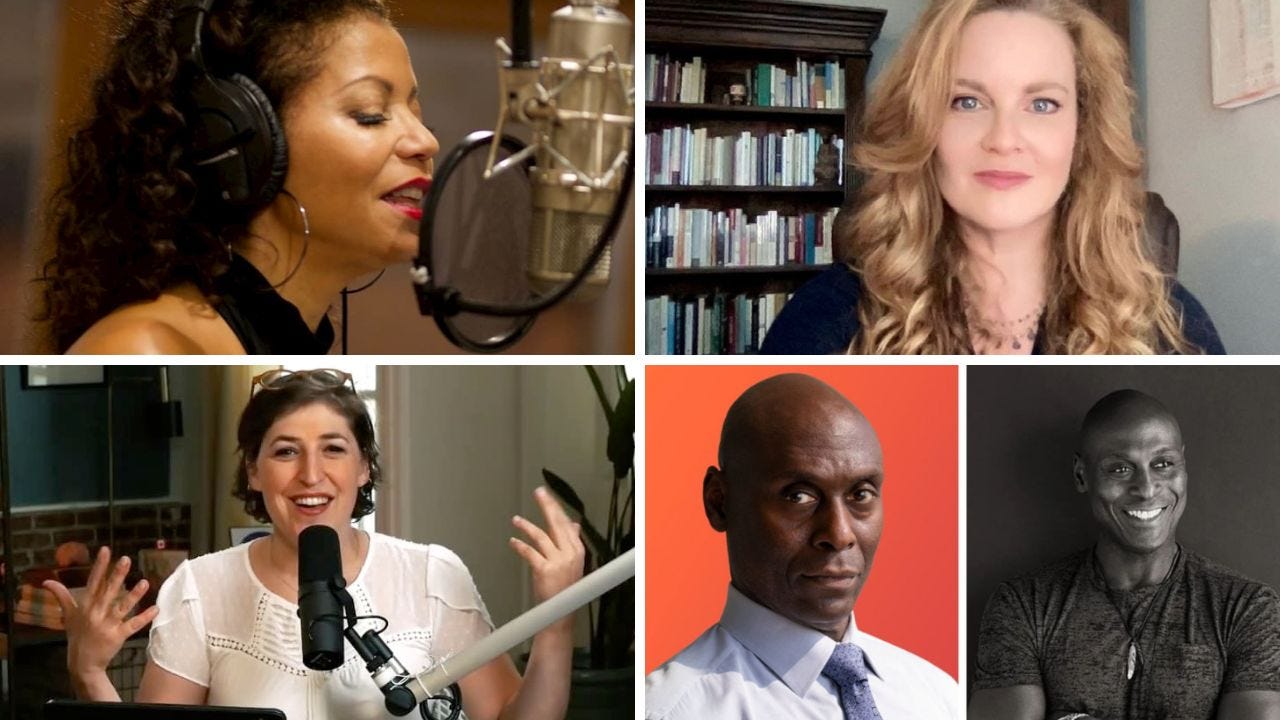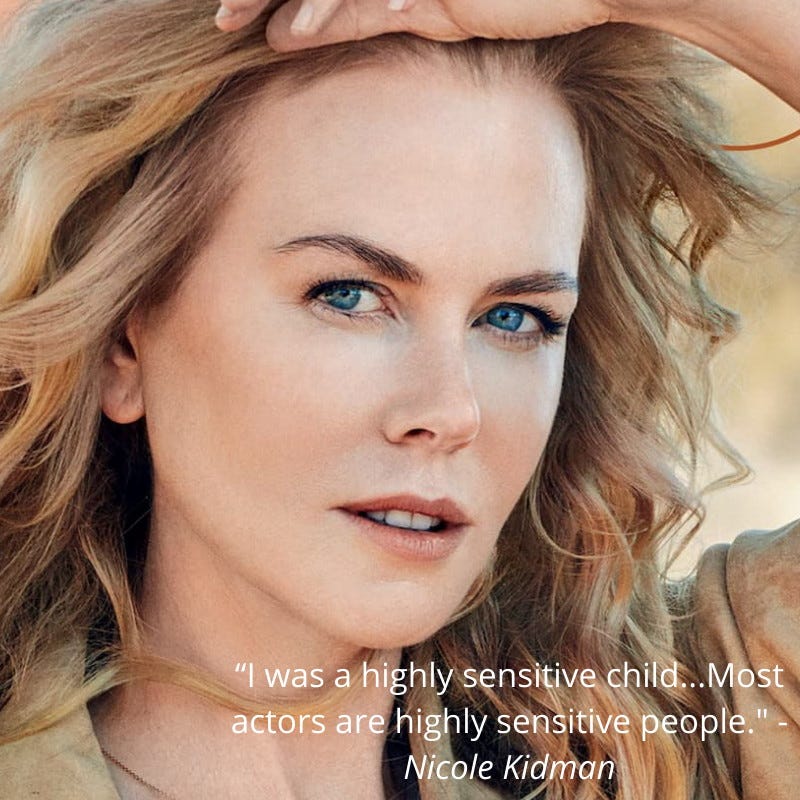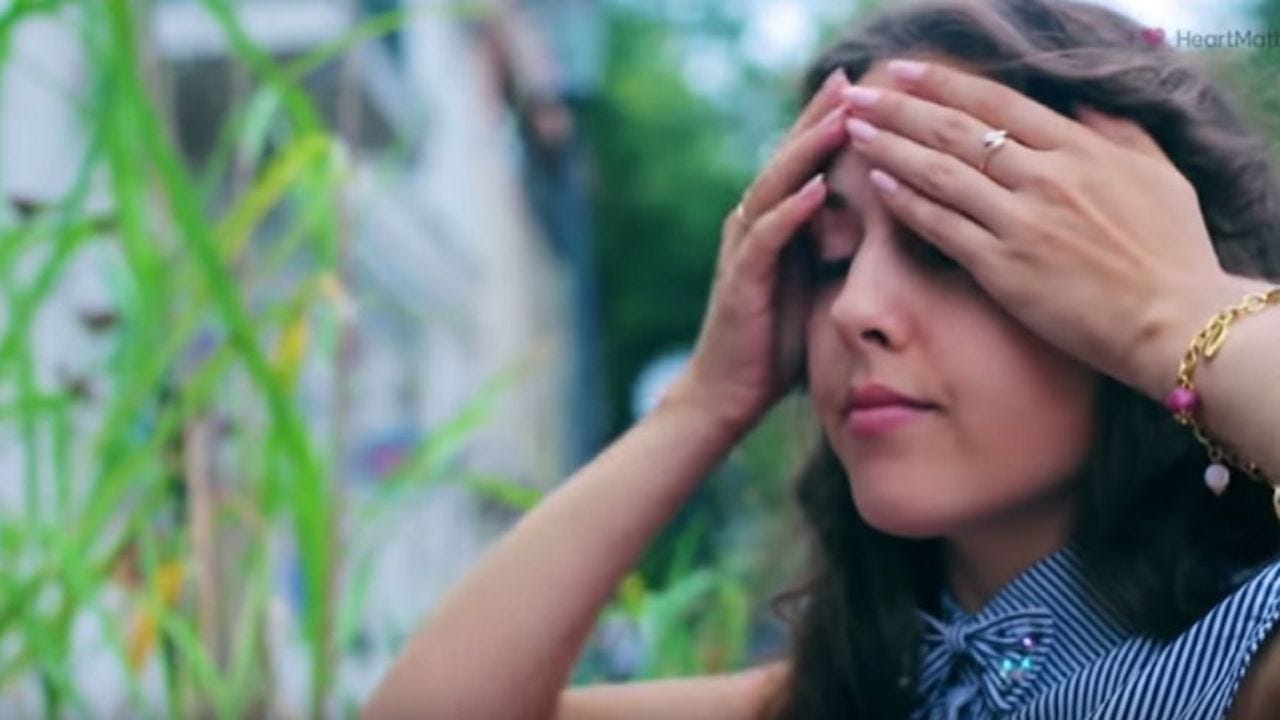How Working With Our Emotions Helps Us Be More Creative
How can we work with our intense emotions?
“Creating art has always been a way to channel emotional intensity.” Psychologist Cheryl Arutt
“If I didn’t have acting (and music), I would burst from all of the emotion inside!” Gloria Reuben
“When you are intimately connected to your emotions’ texture, nuance, and depth, it comes through your art.” Mihaela Ivan Holtz, Psy.D., LMFT
"It sometimes makes me uncomfortable to feel so many big feelings all the time." Mayim Bialik (about being a highly sensitive person)
"When the emotional brain is activated, the cognitive brain kind of goes to sleep." Julie Bjelland, LMFT (see video below.)
“Intensity is not something I try to do. It’s just kind of the way that I am.” Actor Lance Reddick
~~~~~~~
Gloria Reuben has commented about experiencing emotions, especially in the intense way many artists do:
“The thing I love most about acting is that while I am doing a scene, I am allotted all of the freedom to feel.
“Sometimes, actually I find that most times in life, one is not able to fully express what one feels.
“And I am the kind of person that feels so much that if I didn’t have acting (and music), I would burst from all of the emotion inside!”
She has also said, “My sensitivity is my superpower.”
Gloria Reuben is an actor, musician, author, and president of a global clean water nonprofit. Her quotes are from an old official website – her current site: gloriareuben.com.
I really appreciate her comments, and hav quoted her a number of times, such as in my Medium post How To Thrive With Strong Emotions As A Highly Sensitive Person.
Creative people experience a wide range and depth of intense emotions, and use that wealth of feeling to create art.
But experiencing intense emotions can also at times make us overwhelmed. How can we live and work better with our strong emotions?
The idea of regulating emotions is not about suppressing or stifling, but being aware and in control of our feelings enough to gain a level of well-being to enjoy life, and be more creative.
~~~
This audio is a "podcast conversation" about this post was generated using Google's NotebookLM AI tool.
~~~~
Living in the full depth of human experience to be creative
Dr Mihaela Ivan Holtz, Psy.D., LMFT of Creative Minds Psychotherapy helps creative people in TV/Film, performing and fine arts, and writes about the emotional and creative pleasures – and challenges – of their inner life as artists.
She notes “There’s something about living in the full depth of human experience that is conducive to creativity.”
She adds: “When you are intimately connected to your emotions’ texture, nuance, and depth, it comes through your art.
“Your audience can feel the depth of your feeling, and your work truly speaks to their hearts.”
But, she also points out:
“Unfortunately, it’s not always easy to find and maintain this connection with your emotions and convey them in your art.
“Unhealed emotional trauma, unconscious conflicts, and unhealthy defensive strategies that you may have developed to cope with life’s challenges can all interfere with your creativity.
“When you hit a creative block or a prolonged dry spell, you may find yourself wondering: “Why do my emotions mess up my creativity?”
“Many times, unprocessed trauma causes your emotions to feel too intense, overwhelming, or painful.”
Read more in her article Why Do My Emotions Interfere With My Creativity?
~~~
“Intensity is not something I try to do. It’s just kind of the way that I am.” Actor Lance Reddick
Intensity may often be part of the life of creative artists and high ability people, and accompany their trait of high sensitivity.
But living with intensity may mean respecting our needs for mental health and stability, while working with powerful emotions and other forms of intensity, while not trying to suppress or “fix” them.
You can see some forms of intensity in many actors, musicians, and other performers. It is one reason they have such power and presence.
See more in my Substack post Intensity and Being A Creative Person.
~~~~
Unhealed trauma and creating, performing
In multiple articles on her site, Dr Holtz comments about unresolved trauma and being creative. Here is an excerpt from one article:
“Many successful, prolific artists still live in emotional turmoil due to unhealed trauma. Their artistic success is actually built on layers of past trauma.
And though they may have built important careers, they still pay a price.
Addiction, anxiety, depression amongst other problems are the constant companions of successful artists who are still tangled in unresolved trauma.
Wherever you are in your creative career, it is important to check in with yourself about the role that old wounds from the past may play in your present.
Where is your desire to create coming from?
As a child, you may have discovered your passion for playing a musical instrument, singing, painting, acting, writing, animation, or any number of other creative pursuits. You found yourself in a state of joy and curiosity, and were easily lost within your art. That feeling was so special, you were just drawn to keep creating or performing.
Many creatives don’t have such positive early associations with creativity. You may have been a child who felt isolated, bullied, abandoned, or rejected and used art as a way to cope.
Perhaps, you felt misunderstood, unheard, unseen, and undervalued. You discovered that your art could help you know yourself.
It was a place to explore your interests, your ideas, and your own sense of worth.
What is your story of becoming an artist? Is that story rooted in your passion, aptitudes, and talent?
Is it rooted in some emotional frustrations, deprivations, or struggles? Is it both? Where is your art coming from now and how does it speak to others?”
From her article Is Unhealed Emotional Trauma Impacting Your Creativity or Performance? EMDR Can Help.
~~~~
Being a highly sensitive person and creative
Nicole Kidman has commented, “I was a highly sensitive child. Most actors are highly sensitive people.”
Many artists and creators are highly sensitive people (HSPs) and sensitivity research psychologist Elaine Aron declares that at least one research study shows that HSPs are “more emotional” than others.
She explains, “Humans have to evaluate every situation for whether it is good, interesting, desirable, dangerous, sad, and so forth.
“If a situation has even a touch of these, it is processed further.
“This processing can lead to more emotion still.
“Hence emotion leads to processing and processing often leads to more emotion.
“Since HSPs process everything further, they have to be more emotional – emotion is initiating their processing and is often a consequence of their doing so much processing.”
She adds,
“By the way, being more emotional does not cause poor decision making.
“Most of the time emotions improve decisions–we can better appreciate the importance of something and are more likely to act.”
[From her Comfort Zone newsletter post: “Reflections on Research: HSPs Have Stronger Emotional Reactions.”]
Many artists have talked about being highly sensitive, including actors Jessica Chastain, Nicole Kidman, Winona Ryder; musician Bruce Springfield, and others.
~~~
Actor, author, neuroscientist Mayim Bialik said, "If I'm being totally honest, it sometimes makes me uncomfortable to feel so many big feelings all the time.
"I thought for a long time that I needed to change who I was, but after a healthy amount of therapy and surrounding myself with people who understand me well, I've come to realize that being sensitive and sentimental is not something to be ashamed of - it's actually a source of great strength."
This clip is from video "Too Emotional || Mayim Bialik."
» See full video in my Substack article How to more fully realize your strengths and gifts as a Highly Sensitive Person.
~~~~~~~
Being more vulnerable to anxiety and strong emotions is part of our temperament trait of high sensitivity.
Emotional reactivity can impact our life and creative expression in many ways.
There are many flavors of anxiety: insecurity, stage fright, impostor feelings, shyness or social anxiety, unhealthy self-criticism, unhealthy perfectionism, and more.
Julie Bjelland, LMFT is a psychotherapist and author specializing in helping highly sensitive and neurodivergent people.
In this short video, she comments "When the emotional brain is activated, the cognitive brain kind of goes to sleep."
And, she explains, “Highly Sensitive People have particular brain differences that make us more susceptible to high stress, overwhelm and even anxiety.
“Thankfully there is a way to train your HSP brain so you can live your fullest life.”
» Learn about her free webinars for the Sensitive & Neurodivergent to help understand the trait of high sensitivity and manage emotions, including "Highly Sensitive People and Anxiety," "Tools to Help the Sensitive Thrive in a Chaotic World," and others.
Julie Bjelland, LMFT 🌈 is a "Highly Sensitive, Autistic, LGBTQ+ Psychotherapist and founder of Sensitive Empowerment. She provides many posts, books, podcast episodes, webinars, courses, Sensitivity Quiz, the Sensitive Community & more resources. Follow link above to her site.
~~~
» Also see videos in my collections:
Playlist: How to Thrive as a Highly Sensitive Person
~~~
Related podcast posts include:
Creating to channel emotional intensity – an interview with psychologist Cheryl Arutt.
Artists and creative people are likely to be highly sensitive, or introverted, or both.
~~~~
Stress is a common label for a variety of experiences that may include strong feelings. But what is it?
Article: How to work with stress to be healthier and more creative.
The American Institute of Stress explains: “The term ‘stress’ was coined by Hans Selye in 1936, who defined it as ‘the non-specific response of the body to any demand for change.’
“Any definition of stress should therefore also include good stress, or what Selye called eustress.
“For example, winning a race or election can be just as stressful as losing, or more so.
“A passionate kiss and contemplating what might follow is stressful, but hardly the same as having a root canal procedure.”
~~~~~
Also see article How Does Working With Our Emotions Help Us Be More Creative?
Some of the same material as above, plus:
- The neuroscience of what makes us more emotional, with Julie Bjelland, LMFT
- video: Thriving with an emotional and cognitive brain as a highly sensitive person
- Facing our emotions instead of running away
- emotions can inspire us to act and create
- Do highly sensitive people cry more easily?
- Feeling and thinking 'too much'
- Biofeedback devices to help regulate emotion
~~~~~








